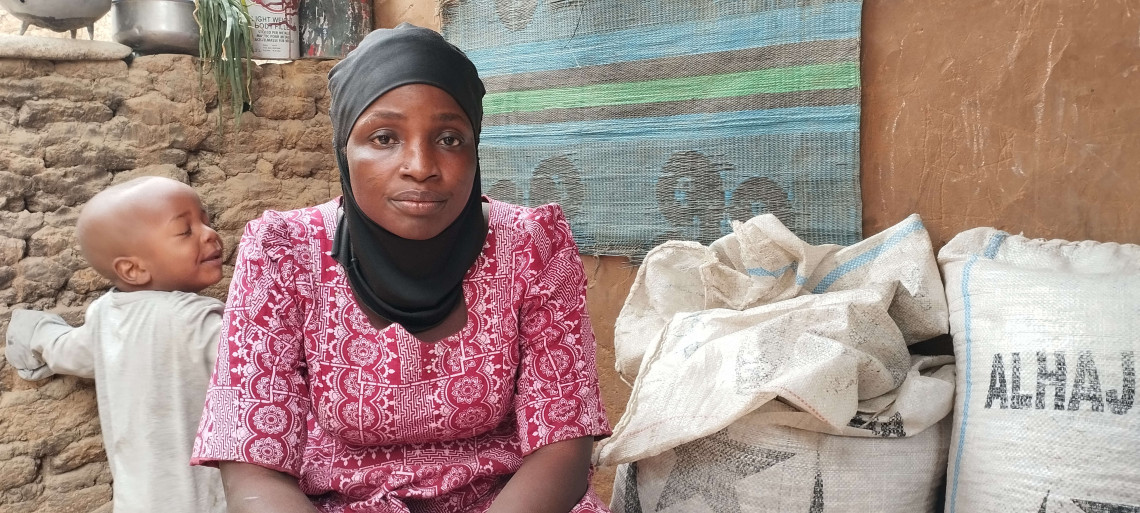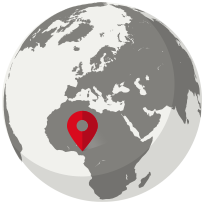
Nigeria: Displaced mother set up small business, trades uncertainty for hope.

“We heard gunshots everywhere. Women and children were crying all around. My husband was out for his fishing business when this started. I never saw him again.” Fatsuma recall.
Reacting to the sounds, Fatsuma did her best to hide with her four children in one corner of the house for two days, with nothing to eat. “Whenever I noticed that Adama, my 7-months old daughter’s cry would expose us, I filled her mouth with my liquid-less breast to prevent her cries from exposing us”.
Baga town is in the northeast of Borno state, Nigeria, approximately 190 kilometers from the state capital, Maiduguri. The town lies on the borders of the Lake Chad and is host to fishermen and farmers. When armed conflict hit the town, the entire community was displaced.
Fatsuma and her family had to come out from their hiding place after two days to embark on a five-day journey to safety. Fatsuma, being a nursing mother, was exhausted from the trek as she had strapped her seven-month-old baby to her back and carried her three -year-old child with her hands.
“I thought I would lose my legs. They were swollen and I could hardly walk. I got some relief after one woman helped to massage the legs with warm water after arriving in Maiduguri. I am happy I regained energy and I can walk,” narrated Fatsuma.
Through her parent’s support, Fatsuma was able to move from Maiduguri to Geidam town, about 300 kilometers northwest of Maiduguri. Unfortunately, Geidam was equally attacked 3 years after, and Fatsuma, and her children were displaced again to Gashua, about 100 kilometer west of Geidam town.
It was challenging to get a house to stay and to feed her children. The cost of accessing health care was equally a big challenge.
Fatsuma was amongst the over 130 families that received cash for livelihood, provided by the ICRC in Gashua in 2023.
With her existing skills in groundnuts oil extraction and baking, she decided to start a business.
“Before the support from the ICRC, I was in a serious situation. No food, no money to rent a house and nothing to sell. I started collecting groundnuts on credit, extract the oil and pay after selling, but sometimes people refused to give me the groundnuts on credit and insisted that I pay first.” Said Fatsuma.
With the support she received from ICRC, Fatsuma’s business is now thriving as she can afford a place to live, feed her children and pay for their medical bills.
She has since expanded the business beyond groundnut oil extraction and making kuli-kuli (groundnut cakes) and kosai (bean cakes), to selling kitchen utensils and other household items such as rubber buckets, water flasks, jugs, plates, spoons, and cups.
“My business is now doing great. Although I don’t know if my husband is still alive or not, at least I can afford for a place to stay and can feed myself and my four children.”
